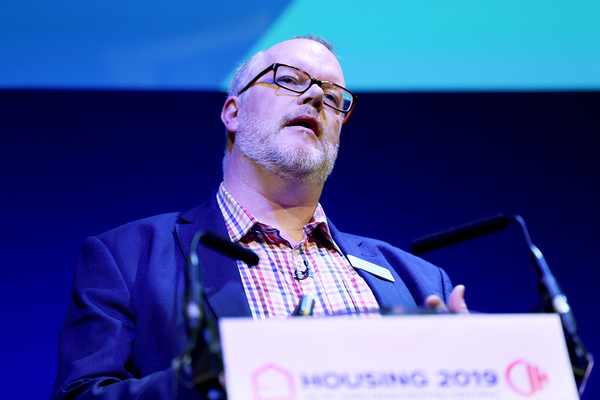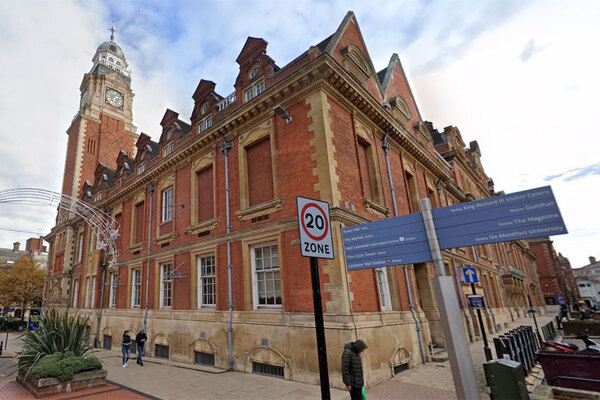
Rachael Williamson is head of policy and external affairs at the Chartered Institute of Housing
Why we need a long-term plan for social housing
The Chartered Institute of Housing is backing Inside Housing’s new Build Social campaign, which calls on all political parties to include a commitment to build a substantial number of homes for social rent in their manifestos at the next general election. Rachael Williamson sets out why she thinks urgent action is needed
Housing should provide a foundation for life, but many people face huge challenges accessing and maintaining an affordable, decent home that meet their needs.
Housebuilding has failed to keep pace with demand for years, with a particularly sharp decline in social housebuilding in the past decade, and we’re all paying the price for it.
In 2010, funding for affordable housing was cut by 63%, including all funding for social rented homes. Although rules were later relaxed to allow some social rented homes to be built, this caused a devastating 81% fall in the delivery of new social housing.
Last year around 7,500 social homes were built (with more lost to the Right to Buy and demolition), compared to nearly 40,000 in 2010. This is against an identified need for at least 340,000 homes each year in England to 2031, including 90,000 for social rent (Heriot Watt, 2018).
Our analysis for the UK Housing Review 2023 shows that England continues to underinvest in affordable housing development compared with the rest of the UK. Housing has a consistently lower share of government spending here (1.6% of the total), which continues to be out of step in directing a high proportion of investment towards the private market.
While comparisons cannot be made on a strictly like-for-like basis, the proportion of investment in affordable housing supply is much higher in Scotland (90%), Wales (87%) and Northern Ireland (100%), compared with England at just 41%. As a result, in the past decade England has only delivered around 10 affordable homes per year per 10,000 population, compared with 15 in Scotland and 14 in Northern Ireland (Wales delivered nine). Housing investment needs to be a much higher priority for the Westminster government.
Pressures on affordable housing supply fuel housing inflation and we can see this starkly in rising private rents, which have increased by their highest annual rate since records began in 2016, up by 5.1% in the year to June (from three per cent in June 2022).
The government is now set to spend five times more (£58.2bn) on subsidising private landlords via housing support than on its entire affordable housebuilding programme (£11.5bn for the Affordable Homes Programme) over the next four years (New Economics Foundation).
These rising housing costs inevitably lead to rising homelessness. Local Housing Allowance has been frozen at 2020 levels, widening the gap between rents and income for many. No-fault evictions are up by 41% on the previous year, and forecasts suggest we could see more than 300,000 British households experiencing the worst forms of homelessness in 2023, an increase of about a third over three years.
One in five children are now living in overcrowded, unaffordable or unsuitable homes, which has a huge impact on their physical, economic and social well-being. In one of the richest countries in the world, this should shock us all into action.
Yes, the cost of living crisis has added to these pressures, but they were already there and governments of all colours have failed to step up to the challenge. We have a broken housing market and a broken (social security) safety net. As someone said to me recently, policy got us into this mess, and it can get us out of it.
“Through their work managing homes and working within the community, housing associations can help to advocate for what places need and target their resources to bring about positive change”
Social housing is the part of the solution. Even while the UK was at war, the government of the 1940s was planning for reconstruction with a large housebuilding programme. The establishment of the cradle-to-grave welfare state included the aim to abolish poor-quality housing and provide affordable homes for the masses. We need to do the same now and put social housebuilding at the heart of the UK’s economic and social recovery.
At the Chartered Institute of Housing, we urge all political parties to commit to recognising the role of housing, particularly social housing, as a foundation for life and a basic human right.
We need a clear, long-term plan, backed by targets, to meet housing need – with transparency and accountability for how it will be delivered. With the right investment and support, social housing providers can play a key role in this. Through their work managing homes and working within the community, they can help to advocate for what places need and target their resources to bring about positive change.
Let’s work together to create a sustainable housing system that supports a vibrant economy and an equitable society. Let’s put people and home at the heart of policymaking.
Rachael Williamson, head of policy and external affairs, Chartered Institute of Housing
Sign up for our daily newsletter
Already have an account? Click here to manage your newsletters













